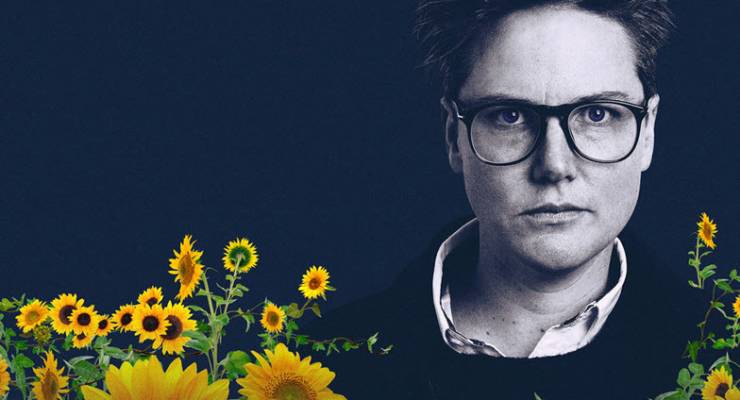
Australian comedian Hannah Gadsby, who found global fame after her Netflix special Nanette.
Last week the European Parliament approved a local content quota on streaming video services including industry giant Netflix. Under the European agreement, online-only streaming services will be required to produce content in the markets it’s available in, and have local content available in their libraries.
It’s a move that the local industry in Australia has also been advocating, with producers and actors campaigning the federal government to impose a quota on streaming services.
The fight so far
The content quotas have been a hot topic for broadcasters struggling in an increasingly fragmented market, with a growing audience for Netflix and others, and declining ad revenues. A senate committee is due to report on its review into Australian and children’s screen content in December, while broadcasters have been lobbying for their own quotas to be removed, arguing that they face unfair competition from the online-only services.
Ahead of the senate review, Netflix has been arguing against any quotas on its library, telling the Australian Financial Review in May that the service already invests in local content, and that it should instead be eligible for incentives such as tax benefits that are offered to local broadcasters.
Screen Producers Australia has been behind a campaign for quotas to be implemented on streaming services as well as local broadcasters, and CEO Matt Deaner is optimistic there will be one in place within the next year or so. “There has been a bipartisan approach to supporting the sector,” he told Crikey. “I’m optimistic this will happen because this will be the way our industry will continue to work.”
Victoria University screen media lecturer Dr Marc C-Scott told Crikey that as long as quotas were in place for television broadcasters, they should also be applied to streaming services.
“The Australian broadcasters want all of these quotas removed but I think they need to be in place,” he said. “I think it’s important that Australian stories are told and the best way is for the local industry to be successful.”
Will global action influence Australia?
C-Scott pointed out that, within the next couple of years, there will be five online streaming services available in Australia, and only one [Stan] would be local. “They really need to all be brought together, with a quota on all of them.”
But for a quota to be positive for the industry, he said, it would need to include a requirement for new local content to be produced, not just a percentage of the library (which would include previously-broadcast content).
C-Scott is less optimistic than Deaner that we’ll see a quota implemented on the streaming services any time soon. “I hope the European agreement will influence their decision, but politics in Australia is a crazy space and I don’t think you can tell what’s going to happen.”
Free TV Australia represents the free-to-air broadcasters, and CEO Bridget Fair told Crikey that they were not currently calling for quotas on streaming services: “Our focus has been on modernising the quotas that apply to commercial broadcasters, most of which have been in place since the 1980s and are in urgent need of reform,” she said.








Hypocrytical Free to Air gets away without quotas on all its channels except the 5 main ones. They need to clean up their own nest first, or lose those channels to an Australian content provider.
Reading the link, 30 percent of European content in the EU isn’t particularly difficult to achieve – 28ish countries can output plenty of rebadged-as-Netflix series that were always going to be produced for their domestic market anyway.
A bit surprising in the current climate of perpetually downsizing and merging newsrooms, invisible-to-FTA sport telecasts, and scraping-for-sponsorship ballet, opera, and theatre companies that there hasn’t been more advocacy for the new media giants of Amazon, Netflix, etc to preserve those waning content producers – or do we think national cultural identity is only worth preserving when it’s television and movie content?
It helps to have so many different language cohorts – not everyone always speaks English.